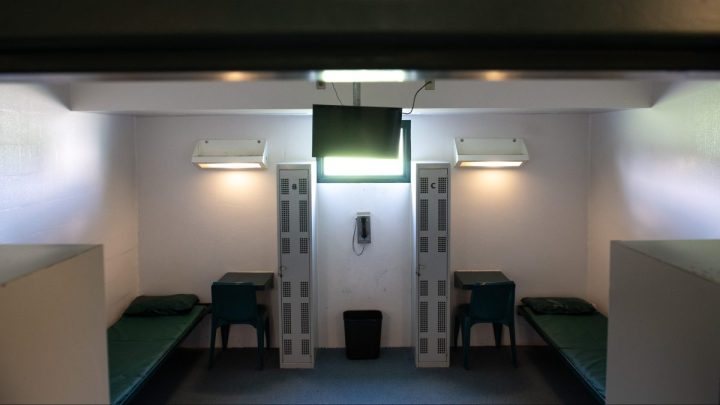
Private prisons anticipate business opportunity after Title 42
Private prisons anticipate business opportunity after Title 42

The pandemic-era rule that allowed for the rapid expulsion of migrants at the border, called Title 42, expired late Thursday. And private prison companies with lucrative immigrant detention contracts with the U.S. government are paying close attention since there’s a chance the end of Title 42 could lead to more people crossing the border — and in immigrant detention centers.
In recent earnings calls of private prison companies Geo Group and CoreCivic, the conversation on the charged topic of immigration is relatively dry and corporate.
“The scheduled expiration of Title 42 restrictions at the southwest border could provide upside to our current forecast,” said George Zoley, CEO of Geo Group. “It’s an unpredictable situation, I think for all of us.”
Title 42 is brought up again and again in the call. This makes sense — the company earned $2.4 billion in revenue last year, much of it from contracts with U.S. Immigration and Customs Enforcement for detention beds and ankle monitoring.
CoreCivic has staffed up for a migrant influx.
“Having staffing in places, especially under ICE contracts at an elevated level for potential demand, is a good investment,” said CEO Damon Hininger in his company’s earnings call.
Immigration detention contracts are critical for such businesses since they’re excluded from the Joe Biden administration’s executive order to end private prison contracts.
“Private prison companies have been able to continue profiting from their contracts with the government for the detention of people in immigration detention,” said Eunice Cho, senior staff attorney at the ACLU’s National Prison Project.
ICE’s budget for detention beds this year is $1.4 billion.
There’s a lot happening in the world. Through it all, Marketplace is here for you.
You rely on Marketplace to break down the world’s events and tell you how it affects you in a fact-based, approachable way. We rely on your financial support to keep making that possible.
Your donation today powers the independent journalism that you rely on. For just $5/month, you can help sustain Marketplace so we can keep reporting on the things that matter to you.

















